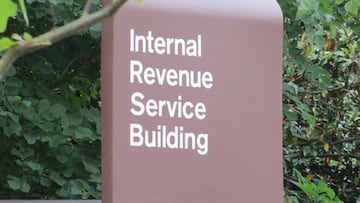When will the IRS send unemployment tax refunds in May?
The IRS plans to start sending automatic refunds to those who paid taxes on unemployment compensation in 2020 before Congress passed a $10,200 tax break.

The Internal Revenue Service (IRS) has said that most taxpayers won’t have to do anything to get back money paid in taxes on unemployment compensation in 2020, they should receive and automatic refund starting in May.
Although the tax agency hasn’t announced an exact start date, it will continue to process returns for taxpayers through the summer. The IRS will do recalculations in two phases, starting with tax returns eligible for the up to $10,200 exclusion and then married couples filing jointly eligible for up to $20,400 along with more complex returns.
- Are the third stimulus checks included in 2021 IRS tax filing?
- The IRS is sending out weekly "plus-up" payments
- Congress is split on a fourth stimulus check
- Who is getting an extra stimulus check payment and why?
Taxpayers will need to check with their state
The IRS recommends that taxpayers review their state tax return, as not all states have adopted the tax break on unemployment benefits. The IRS extended the federal filing deadline to 17 May this year to give taxpayers additional time to "help taxpayers navigate the unusual circumstances related to the pandemic." Taxpayers should check to see if their state tax agency extended the tax filing deadline to avoid any state level penalties.
How does the $10,200 tax break on unemployment benefits work?
The tax waiver is only applicable to unemployment compensation received in 2020. It allows taxpayers to exclude up to $10,200 per person of unemployment benefits received. Both individuals and married couples filing jointly who have a modified adjusted gross income (AGI) of less than $150,0000 can claim the waiver.
However, married couples can only claim up to $10,200 per person, on income from unemployment compensation that each of them earned individually. If one received jobless aid for less than $10,200, the couple will not be able to claim the full $20,400 waiver.
The American Rescue Plan allows taxpayers who earned less than $150,000 in modified adjusted gross income to exclude $10,200 of unemployment compensation in 2020 from taxes. #IRS will take steps to automatically refund money this spring and summer. https://t.co/pglPeUWwVu pic.twitter.com/4kcDqNnll8
— IRSnews (@IRSnews) April 5, 2021
Should I amend my return?
The IRS told taxpayers not to file an amended return unless the recalculation would make the taxpayer newly eligible for additional federal tax credits and/or deductions that hadn’t been included on the original tax return.
Related stories
Certain tax provisions can only be claimed based on a filers AGI along with other requirements. One tax credit in particular the IRS specifies is the Earned Income Tax Credit (EITC). Taxpayers who claimed the EITC will have their returns automatically adjusted, but the agency recommends filing an amended tax return for those who did not originally claim the EITC or other credits but now are eligible because the exclusion changed their income.
In all other cases the agency will determine the correct amount that needs to be taxed and issue a refund or use any overpayment toward outstanding debts.
The earned income tax credit is meant to reduce the amount that low- and moderate-income Americans have to pay in taxes — and it can sometimes result in a refund. Figuring out whether you qualify can be confusing. This guide can help. https://t.co/XUBEjQjvrT
— ProPublica (@propublica) April 3, 2021
- Pandemic
- Coronavirus
- Recession
- Tributes
- Employment
- Economic climate
- Virology
- Outbreak
- Infectious diseases
- Public finances
- IRS
- Microbiology
- Diseases
- Medicine
- Work
- Economy
- Finances
- Life sciences
- Unemployment compensation
- Covid-19 economic crisis
- Science
- Unemployment
- Coronavirus Covid-19
- Economic crisis
- Inland Revenue
- Taxes
- Health

